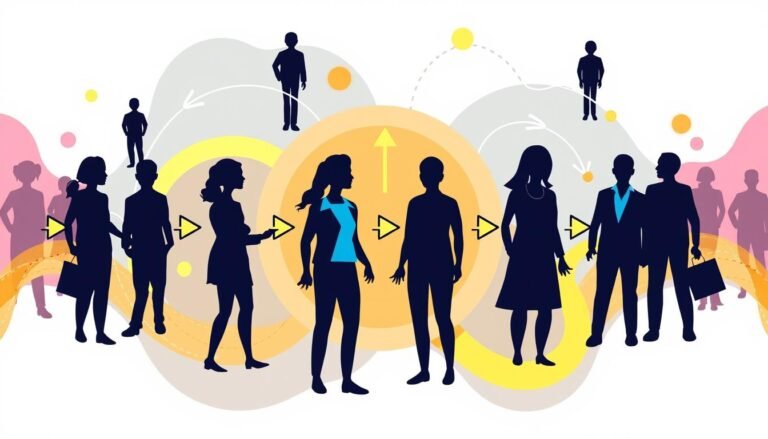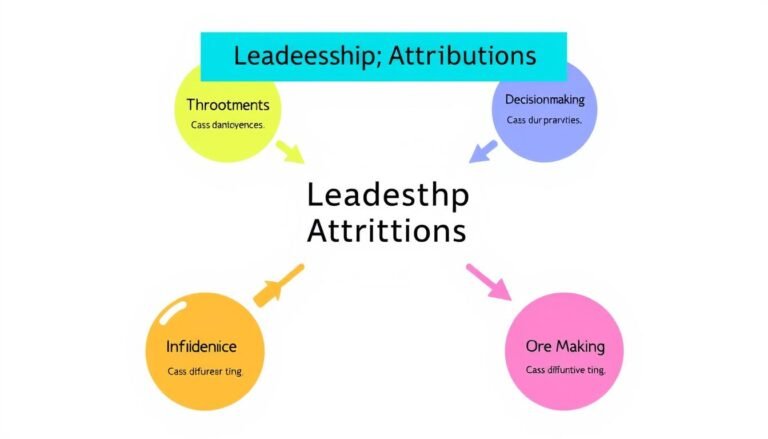Organizational Gossip Psychology
The office grapevine is buzzing in today’s workplace. Rumors spread fast, shaping the gossip culture in unexpected ways. Gossip is more than idle chatter; it affects how we interact and perform our jobs.
Gossip is not just a waste of time. It’s a key way for people to connect and share information. It helps us bond and follow social norms. But, it can also harm relationships and productivity.
Studies show gossip is a big part of our work lives. A 2019 study found we spend about 52 minutes a day gossiping. Most of this gossip is neutral or positive, not negative.
So, when you hear gossip by the water cooler, remember it’s more than just gossip. It’s a complex social dance that’s been with us since ancient times. It’s a fascinating part of workplace psychology that keeps researchers and managers interested.
Key Takeaways
- Workplace gossip is more common than you might think
- Neutral gossip is more prevalent than positive or negative gossip
- Gossip serves important social functions in the workplace
- Positive gossip can boost job satisfaction and organizational identity
- Gossip influences workplace dynamics and relationships significantly
- The office grapevine can be a powerful informal communication channel
Understanding the Nature of Workplace Gossip
Workplace gossip is a big part of how people talk and interact at work. It can make things better or worse, affecting how well we work together.
Defining Workplace Gossip and Its Forms
Workplace gossip is when people talk about others who are not there. It can be good, okay, or bad, changing how we feel about our workplace.
The Evolutionary Basis of Organizational Gossip
Gossip has always helped people connect and keep their communities strong. At work, it still plays a big role in how we share information and build friendships.
Statistical Prevalence in Modern Workplaces
Studies show gossip is everywhere at work:
- 90% of what we say at work is gossip
- Bad gossip makes us less likely to do our best work
- Being anxious makes negative gossip worse
A study of 352 female frontline workers found gossip’s big impact. It can ruin friendships, stop us from sharing ideas, and make us less happy and creative.
“Overly broad no-gossip policies can violate the National Labor Relations Act related to protected concerted activity.”
Some places try to stop gossip, but they have to be careful. They need to let people talk about things like pay and work hours without breaking the law.
The Three Types of Workplace Gossip Communication
Rumor mills are common in offices, affecting how people get along. Knowing about different types of workplace gossip can help employees deal with these social issues.
Positive Gossip: Building Social Bonds
Positive gossip helps build connections at work. It’s about sharing good news about colleagues who are away. This kind of talk can make everyone feel more united and happy.
Neutral Gossip: Information Exchange
Neutral gossip is just sharing facts without any opinion. It’s the most common kind of office talk. It keeps everyone informed and helps them understand the company better.
Negative Gossip: Destructive Communication
Negative gossip spreads bad news, which can hurt reputations and relationships. Though it’s not as common, it can still cause big problems in the workplace.
- Over 90% of employees engage in some form of gossip
- Up to 20% of work emails contain gossip, varying by job rank
- Two studies (N=214 and N=189) found that both positive and negative gossip can indirectly improve task performance
| Gossip Type | Prevalence | Impact on Performance |
|---|---|---|
| Positive | Common | Improves through promotion focus |
| Neutral | Most common | Facilitates information exchange |
| Negative | Least common | Can improve through prevention focus |
Understanding these gossip types can help organizations manage rumor mills and foster healthier interpersonal relationships at work.
Organizational Gossip Psychology in Corporate Culture
Corporate gossip culture deeply influences how we act at work. With more people working from home, gossip has moved from the watercooler to online chats. This change shows how communication has changed in today’s workplaces.
Gossip affects how employees feel and how well the company does. Good gossip can make people happier and feel like they belong. Studies show that companies that make people feel valued see better job performance and less turnover.
But, bad gossip can damage trust and teamwork. It’s more likely to hurt than help. Too much gossip can make people unhappy and cause them to leave, affecting how well the company works.
“Gossip can be a toxic form of empathy, potentially causing burnout and emotional strain.”
To fight the bad effects of gossip, companies can take steps. They can set clear rules, encourage open talk, and create a positive atmosphere. By tackling gossip early, companies can keep their work environment healthy and safe.
| Impact of Positive Gossip | Impact of Negative Gossip |
|---|---|
| Increased job performance (56%) | Higher turnover risk |
| Reduced turnover risk (50%) | Decreased employee engagement |
| Improved employer net promoter score (167%) | Lower morale |
| Decreased sick days (75%) | Potential litigation risks |
The Impact of Gossip on Employee Performance
Workplace rumors and how people behave at work greatly affect how well employees do their jobs. Gossip can change how well a team works together, how productive they are, and how creative they can be.
Productivity and Work Behavior Changes
Negative gossip can really hurt how well employees do their jobs. Research shows it can make them less happy and less productive at work. When someone is talked about negatively, they might feel worse about themselves. This can make it hard for them to focus on their work.
Effects on Team Dynamics
Gossip can either make teams stronger or weaker. Good gossip can make work better and reduce problems. But bad gossip can hurt how well people get along, making the workplace toxic. This can make teams less effective and less productive.
Impact on Innovation and Creativity
Gossip can also stop new ideas and creativity. When people feel judged or unsafe, they’re less likely to share their ideas. This fear can make everyone stick to what they know, not wanting to try new things.
| Type of Gossip | Impact on Performance |
|---|---|
| Positive | Improved work efficiency, increased organizational citizenship |
| Negative | Decreased productivity, reduced job satisfaction, hindered creativity |
It’s important to understand how gossip affects work performance. By encouraging good communication and dealing with bad rumors quickly, companies can create a better work environment. This environment is more productive and open to new ideas.
Social Power Dynamics in Workplace Gossip
Workplace gossip shapes social dynamics in organizations. It affects how people interact at work and can help advance careers. Research finds that 41% of employees gossip at work, showing it’s common.
Gossip can be good or bad at work. While 81% of it is just for fun, it can also harm team work and performance. Good gossip about someone’s skills can make them more respected and valued.
Gossip’s power in improving team work is clear. Studies show gossip can make teams 16% better over time. This means gossip can help teams work together better and share information.
But, gossip can also be competitive. People use it to get ahead. A study found positive gossip can make someone more powerful and happy at work, reducing job worries.
| Impact of Gossip | Percentage |
|---|---|
| Decrease in team cohesion (negative gossip) | 17.5% |
| Increase in employee cynicism | 25% |
| Decrease in employee creativity | 27% |
| Improvement in team performance | 16% |
It’s key to understand gossip’s role in work relationships. Knowing its good and bad sides helps create a better work environment. This promotes teamwork and respect among colleagues.
The Role of Gossip in Information Networks
Gossip is key in Informal Communication Networks in companies. These networks help spread information, often outside official channels. Rumor Mills, a part of these networks, can quickly share news across a company.
Informal Communication Channels
Informal Communication Networks rely on gossip to share information. A study found people talk about others for about an hour each day. This shows gossip is common in work settings.
Knowledge Sharing Through Gossip
Gossip helps share knowledge in companies. It allows people to learn from others when they can’t observe directly. Research shows 90% of people become gossipers by the end of a simulation. This shows gossip’s wide reach in sharing information.
Decision-Making Influence
Gossip greatly affects decision-making in workplaces. It shapes how people see others and situations. A study found 73% of people know when they’re being gossiped about. This can change their behavior and choices.
| Impact of Gossip | Short-term Effect | Long-term Effect |
|---|---|---|
| Work Effort | Increased (when gossip is true) | Decreased |
| Cooperative Intentions | Varied | Lower |
| Intra-team Trust | Decreased | Decreased |
These findings show gossip’s complex role in company information networks. It influences both individual actions and team dynamics.
Psychological Effects on Workplace Victims
Gossip in the workplace can deeply affect people’s minds. Those who are talked about often struggle with big emotional issues. These issues can harm their job performance and overall happiness.
Anxiety and Stress Responses
Gossip can make people feel anxious and stressed. The Equal Employment Opportunity Commission (EEOC) found 82,847 cases of workplace discrimination. Many of these were because of gossip. This kind of talk can make people avoid work and social interactions.
Impact on Job Satisfaction
Gossip can also lower job satisfaction. Almost 75% of employees think gossip hurts their work. This can make them less interested in their job and less able to do their work well.
Career Development Implications
Gossip can hurt someone’s career for a long time. Victims might not tell HR about the gossip because they don’t trust them. This can stop them from moving up in their job. It shows why training against harassment is important to keep the workplace safe.
| Impact Area | Percentage Affected |
|---|---|
| Employees believing gossip influences workplace dynamics | 70% |
| Employees admitting to gossiping at work | 70% |
| Workers feeling gossip creates a toxic environment | 57% |
It’s important to understand these effects to build a healthy work culture. This helps reduce the harm gossip can cause in the workplace.
Gender Differences in Workplace Gossip
Workplace gossip is common, with over 95% of employees involved. Gender influences how gossip spreads, affecting office dynamics.
Studies show women gossip more than men. A study of 1,267 employees found gossip makes up 65% of their time. This shows gossip is a big part of office culture.
Research found gender impacts how gossip is seen. Women judge gossip spreaders harsher than men. This means women might be more critical of gossipers.
Being seen as a gossip source can harm careers. Both genders face sanctions and social exclusion. This shows gossip can be risky, no matter who spreads it.
| Aspect | Female Employees | Male Employees |
|---|---|---|
| Gossip Engagement | Higher | Lower |
| Moral Judgment of Negative Gossip | More Critical | Less Critical |
| Response to Positive Gossip | Increased Job Satisfaction | Increased Job Satisfaction |
Positive gossip helps both genders. It boosts job satisfaction and sense of belonging. This shows positive gossip can be good for work relationships.
The Connection Between Gossip and Job Security
Workplace gossip is a big part of corporate culture and how teams work together. A huge 95% of workers chat at work, with gossip making up 65% of those talks. This has a big effect on keeping jobs and keeping employees happy.
Impact on Employee Retention
Good gossip at work can make employees happier and more likely to stay. Studies show it helps reduce slacking off and makes friends stronger. It makes the workplace feel better, making everyone more loyal.
In fact, 18.7% of U.S. adults work in nonstandard jobs. This shows how important it is to have good relationships at work.
Organizational Identity Formation
Good gossip helps shape how employees see their company. It makes them feel more secure in their jobs and more connected to the company. Research shows it boosts job satisfaction by making employees feel more part of the team.
This positive vibe can also make employees more creative and adaptable. This is key for keeping up with business changes.
Source Links
- A Psychologist Explains How To Use ‘Good Gossip’ At Work
- Effect of Perceived Negative Workplace Gossip on Employees’ Behaviors
- Frontiers | The relationship between positive workplace gossip and job satisfaction: The mediating role of job insecurity and organizational identity
- Workplace gossip erodes proactive work behavior: anxiety and neuroticism as underlying mechanisms – BMC Psychology
- Workplace Gossip: What Crosses the Line?
- How does receiving gossip from coworkers influence employees’ task performance and interpersonal deviance? The moderating roles of regulatory focus and the mediating role of vicarious learning
- Peeling Away the Layers of Workplace Gossip: A Framework, Review, and Future Research Agenda to Study Workplace Gossip as a Dynamic and Complex Behavior
- Gossip Girl – The Impact of Workplace Gossip on Company Culture
- The Negative Impact of Gossip in the Workplace
- The Surprising Truth About Office Gossip And Belonging
- Frontiers | The Impact of Negative Workplace Gossip on Employees’ Organizational Self-Esteem in a Differential Atmosphere
- Effects of Workplace Gossip on Employee Mental Health: A Moderated Mediation Model of Psychological Capital and Developmental Job Experience
- A COMPREHENSIVE OVERVIEW OF WORKPLACE GOSSIP AND ITS IMPACTS – International Journal of Research in Education Humanities and Commerce
- Can’t Stand Gossip? New Research Suggests That Gabbing About Others Is ‘Not Always a Bad Thing’
- The Bright and Dark Side of Gossip for Cooperation in Groups
- Psychological Effects of Workplace Harassment
- How Informal Communication Shapes Conflict and Organizational Climate
- Frontiers | The Bright and Dark Side of Gossip for Cooperation in Groups
- The effects of message direction and sex differences on the interpretation of workplace gossip
- Don’t Shoot the Messenger? A Morality- and Gender-Based Model of Reactions to Negative Workplace Gossip – Journal of Business Ethics
- The relationship between positive workplace gossip and job satisfaction: The mediating role of job insecurity and organizational identity
- Can Gossip Buffer the Effect of Job Insecurity on Workplace Friendships?
- Frontiers | Is not workplace gossip bad? The effect of positive workplace gossip on employee innovative behavior








